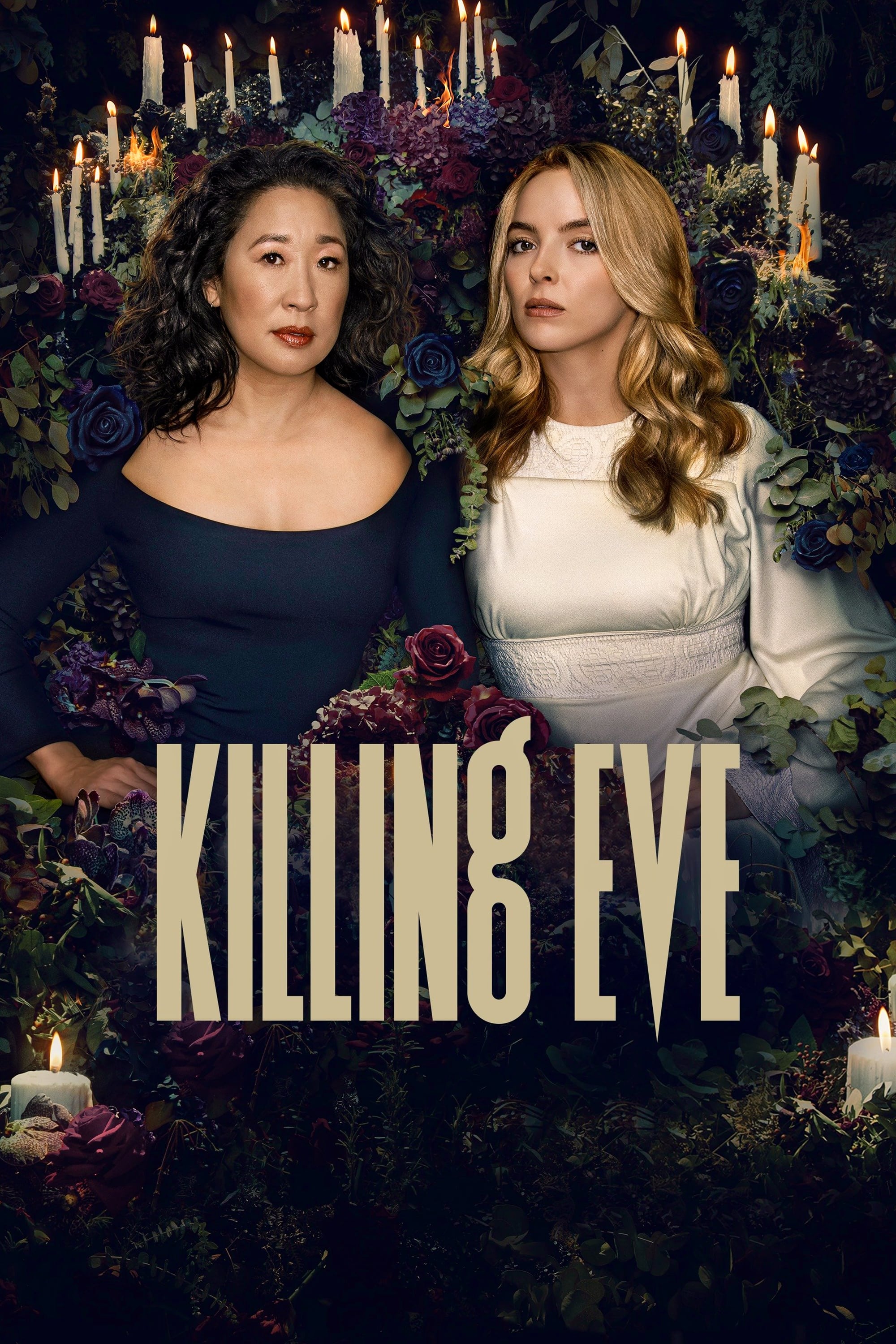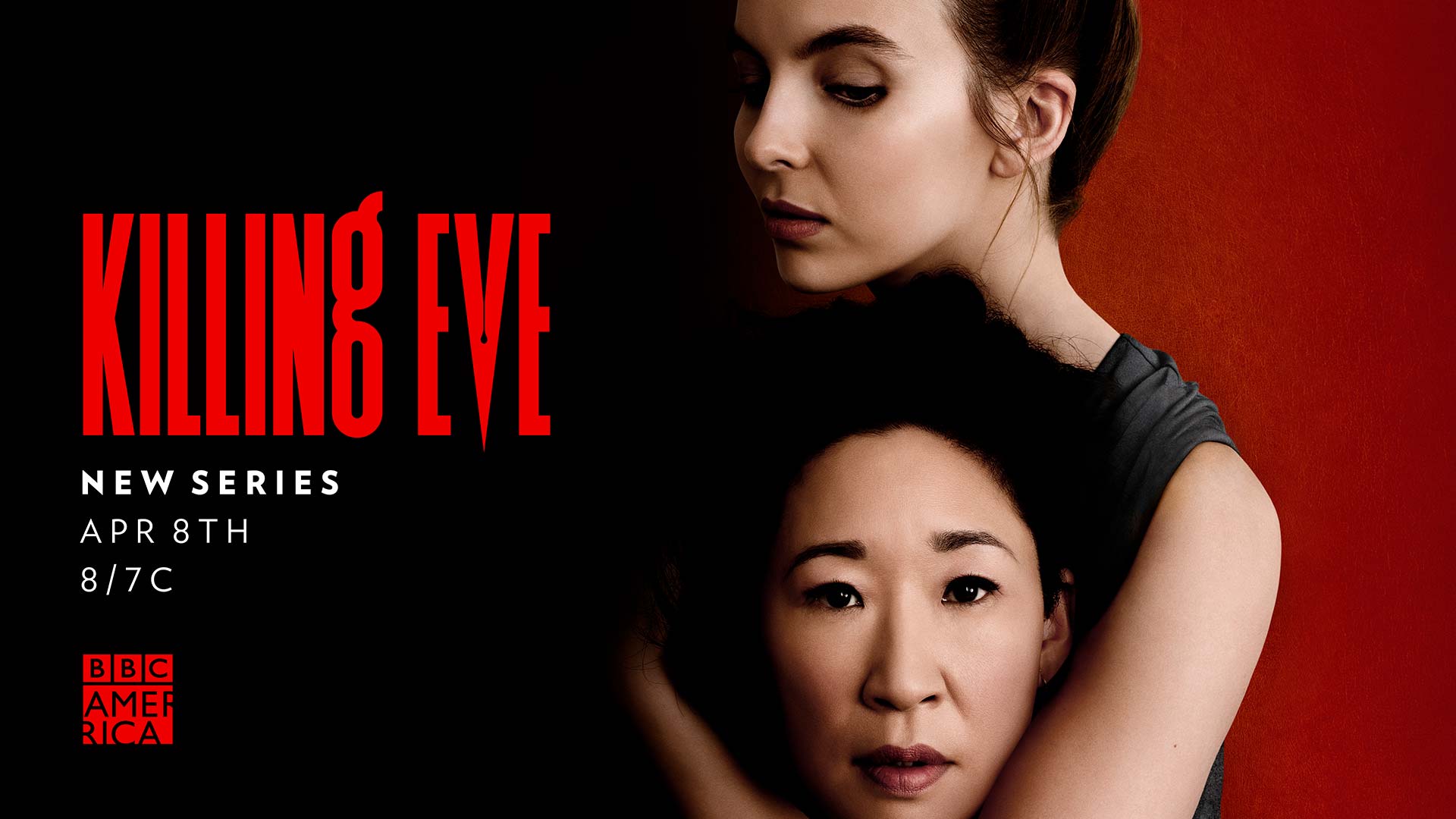Ideal Info About What Language Is Killing Eve

Decoding the Dialogue
1. The Linguistic Labyrinth of Villanelle
Alright, let's dive into the captivating world of "Killing Eve," a show as stylish and twisty as Villanelle's wardrobe. While the story's thrills and character dynamics are gripping, there's a subtle yet crucial element that often goes unnoticed: language. Specifically, what language is "Killing Eve" using to communicate its story, its nuances, and the multifaceted persona of its characters? It's not just English, that's for sure.
Villanelle, our delightful assassin, isn't just good at eliminating people; she's also a polyglot extraordinaire. Her ability to seamlessly switch between languages isn't just a cool party trick; it's integral to her identity. Think about it: each language provides her with a different mask, a different way to interact with the world. It allows her to manipulate, seduce, and even intimidate with a level of finesse that a monolingual operative simply couldn't achieve.
The show cleverly utilizes language to highlight Villanelle's chameleon-like nature. One moment she's charming a target in perfect French, the next she's barking orders in Russian. It keeps us on our toes, and it also reinforces the idea that she's not easily defined. She's a woman of many faces, and many tongues, constantly evolving and adapting to her surroundings.
So, if we're pinpointing the main language element at play, it's not solely about what is killing Eve, but rather the use of multiple languages to construct Villanelle's complex, and often terrifying, allure. This linguistic diversity underscores her unpredictability and global reach. It's like she's saying, "I'm everywhere, and I speak your language."

French Kiss-Offs and Russian Roulettes
2. More Than Just English
Let's get granular. While English serves as the primary language for much of the dialogue (especially for Eve and MI6), the series strategically sprinkles in French, Russian, Italian, and even German. Each language isn't just casually thrown in; it serves a specific purpose in the narrative.
French, often associated with romance and sophistication, is frequently used by Villanelle when she's attempting to charm or seduce. It's her go-to language for creating an air of intimacy and intrigue. Think of those moments when she's whispering sweet nothings (or chilling threats) in French to her targets. It's all part of the game.
Russian, on the other hand, often surfaces when Villanelle is connecting with her roots or communicating with her handlers. It's a reminder of her past, her training, and the forces that have shaped her into the person she is today. It's a stark contrast to the lighter, more playful tone she adopts when speaking French.
The other languages, though less frequent, also contribute to the show's overall sense of global intrigue. They highlight the international scope of Villanelle's work and the complex web of relationships that surround her. The key takeaway is that language isn't just a tool for communication; it's a tool for character development, plot advancement, and world-building.

Killing Eve (2018) The Poster Database (TPDb)
The Subtext Behind the Subtitles
3. Lost in Translation, Found in Interpretation
Ah, subtitles. Those little lines of text that appear at the bottom of the screen, allowing us to follow along when characters are speaking a language we don't understand. But what happens when we rely solely on subtitles? Do we miss out on subtle nuances in tone, delivery, and body language? Absolutely.
Consider Villanelle's delivery in Russian. Even if you don't understand the words, you can often glean a sense of her underlying emotions from her tone and facial expressions. Is she being sarcastic? Is she angry? Is she genuinely trying to connect with someone? These are cues that can be easily overlooked when you're solely focused on reading the subtitles.
However, subtitles also offer a unique opportunity for interpretation. They allow us to analyze the specific word choices that are being used, and to consider how those words might be interpreted by different audiences. They force us to engage with the text in a more active way, and to think critically about the meaning behind the dialogue.
Ultimately, the subtitles in "Killing Eve" serve as a bridge between cultures and languages. They allow us to access a world that might otherwise be inaccessible, and to appreciate the richness and complexity of the show's linguistic tapestry. It's a reminder that language is more than just words; it's a way of connecting with others, of understanding different perspectives, and of exploring the human condition.

Is 'Killing Eve' On Netflix? Here's Where To Watch And, 54 OFF
Beyond Words
4. Actions Speak Louder Than (Foreign) Words
Let's not forget that communication isn't just about words. Body language, facial expressions, and even the way someone holds themselves can speak volumes. In "Killing Eve," nonverbal communication is often just as important, if not more so, than the actual dialogue.
Think about the scenes between Eve and Villanelle. Their interactions are often charged with unspoken tension, desire, and even a hint of danger. They communicate through glances, subtle gestures, and carefully choreographed movements. It's a dance of seduction and manipulation, and it's all done without saying a word.
Villanelle is a master of nonverbal communication. She can convey a wide range of emotions with just a flick of her wrist or a raised eyebrow. She uses her body language to intimidate, to seduce, and to control those around her. It's a crucial part of her toolkit as an assassin, and it's what makes her such a compelling and unpredictable character.
In essence, "Killing Eve" reminds us that communication is a multifaceted process that involves more than just the spoken word. It's about connecting with others on a deeper level, understanding their unspoken needs and desires, and using both verbal and nonverbal cues to navigate complex social situations.

Killing Eve (BBC America, AMC) S Sandra Oh, Jodie Comer
The Lingering Questions
5. Decoding the Deeper Meaning
"Killing Eve" thrives on ambiguity. It's a show that raises more questions than it answers, leaving us to ponder the motivations and desires of its complex characters. This intentional ambiguity extends to the use of language as well.
For example, why does Villanelle choose to speak French in certain situations? Is it simply a matter of practicality, or is there a deeper psychological reason behind her choice? Does it reflect a desire to connect with her targets on a more intimate level, or is it simply a way of asserting her dominance?
Similarly, what does the show's use of Russian tell us about Villanelle's past and her relationship with her handlers? Is it a symbol of her loyalty to the organization that trained her, or is it a reminder of the trauma she has endured? These are questions that the show doesn't explicitly answer, but it invites us to consider.
Ultimately, the show's ambiguous use of language encourages us to engage with the text in a more active and thoughtful way. It challenges us to look beyond the surface, to consider the deeper implications of the dialogue, and to draw our own conclusions about the characters and their motivations. It's a testament to the show's intelligence and its willingness to trust its audience to do the work.
